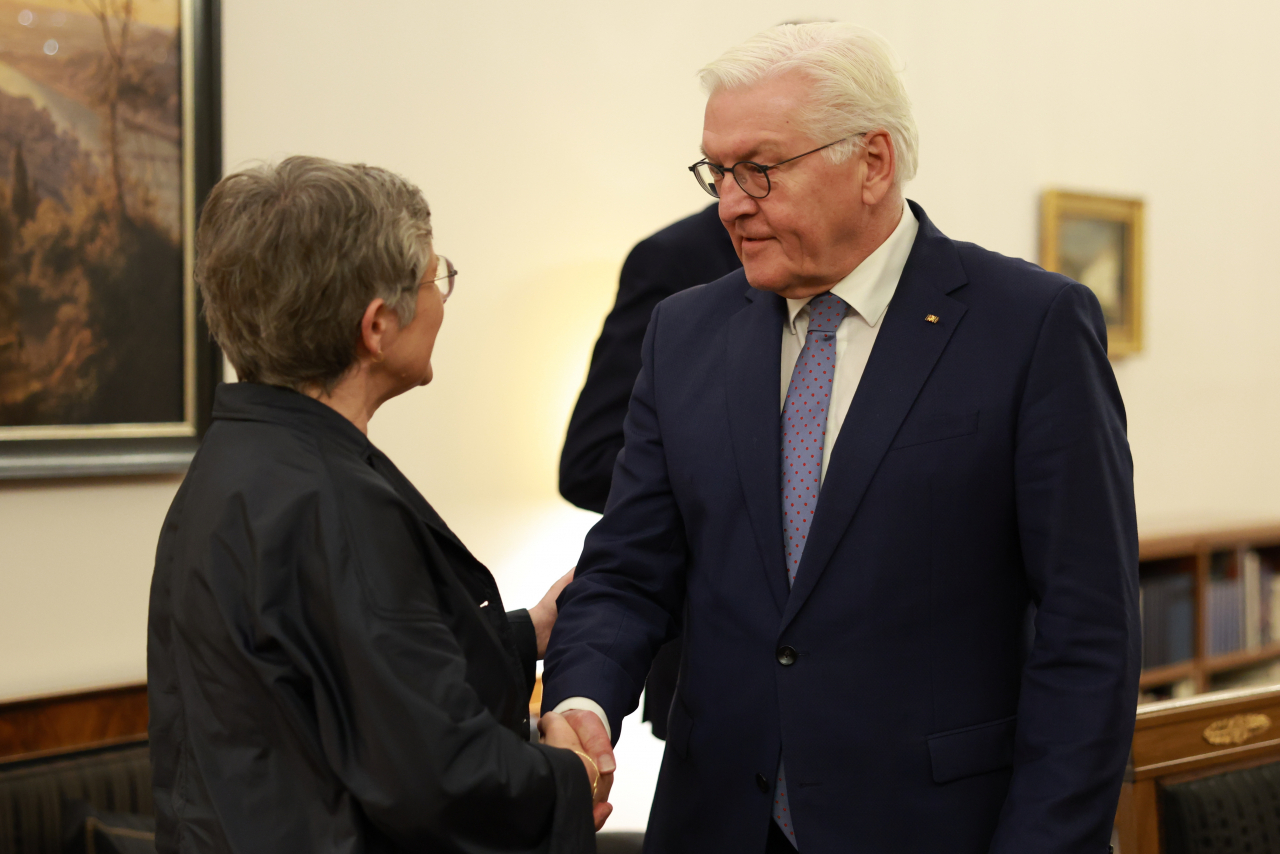BERLIN (AFP) -- Germany is headed for snap elections on Feb. 23, the main parties agreed Tuesday, aiming to form a stable government after Chancellor Olaf Scholz's three-party coalition collapsed last week.
The country's two biggest parties agreed on the early timetable, which will see center-left leader Scholz seek a vote of confidence on Dec. 16.
This would pave the way for the February vote in a compromise his Social Democrats hammered out with the conservative opposition Christian Democrats and their Bavarian allies CSU.
President Frank-Walter Steinmeier later said he backed the timeline and deemed the targeted date "realistic."
The head of state urged all mainstream parties to cooperate responsibly until then to "to ensure Germany's internal and external security and international reliability in this transitional phase."
The agreement seeks to quickly restore political stability at a time when Europe's biggest economy is set to shrink for a second year in a row and amid heightened geopolitical volatility, with wars raging in Ukraine and the Middle East and president-elect Donald Trump readying to take power in the US in January.
The new election date will see Germany ruled by a lame-duck chancellor and stuck in the middle of its campaign period when Trump is inaugurated on Jan. 20.
Embattled Scholz, who wants to run again despite poor poll ratings, initially suggested an election in late March but came under heavy pressure from all other parties to speed up the process.
The CDU is riding high in the polls and its leader Friedrich Merz had pushed strongly for an election as early as possible -- a demand backed by two thirds of voters, according to a recent survey.
"We don't have unlimited time to elect a new government in Germany, regardless of who leads it ... because the world around us is not waiting," Merz said on Tuesday.
"The world expects a Germany that is capable of taking action."
The Feb. 23 date will force politicians to run their campaigns in the dark and cold of winter, when voters will be less enthusiastic to flock to outdoor events than during the usual summer campaign seasons.
Scholz is expected to lose the confidence vote in the lower house of parliament, after which Steinmeier will have 21 days to dissolve the Bundestag. Elections have to be held within the next 60 days.
Scholz took office in late 2021, taking over from the CDU's Angela Merkel, in a three-way coalition with the left-leaning Greens and the liberal and pro-business Free Democrats.
But mounting differences over economic and fiscal policy came to a head last week when Scholz fired the rebellious FDP finance minister Christian Linder, prompting the small party to leave the government.
The government collapse came on the day Trump won the White House race, something Vice Chancellor Robert Habeck of the Greens told broadcaster DW "sounds like a bad historical joke."
Scholz's coalition marked the first time a tripartite alliance has ruled at the national level, and it may not be the last, given Germany's increasingly fragmented political party landscape.
Fears about immigration have driven the rise of the far-right Alternative for Germany party. It is now polling at close to 20 percent, but other parties have pledged to shun it as a coalition partner.
The latest polls put the center-right CDU/CSU alliance firmly in the lead at 32 percent.
To win a majority, however, the conservatives would likely need the future backing of the SPD, which is currently polling at 15.5 percent, plus a third party.
Contenders for that spot, according to current polling, would be either the FDP, with five percent support, or possibly the Greens, who are polling at 11 percent.
Lindner, who has said he wants to be finance minister again, on Tuesday welcomed the date for new elections, saying, "Happily we now have clarity on this question."
He earlier said that he thought Merz "will almost certainly be the next chancellor of Germany. The only question is: Who will chancellor Merz govern with?"

cap: German President Frank-Walter Steinmeier (right) welcomes Green party faction co-chairwoman Britta Hasselmann for a meeting at Bellevue Palace in Berlin, Tuesday. EPA-Yonhap







![[Today’s K-pop] Blackpink’s Jennie, Lisa invited to Coachella as solo acts](http://res.heraldm.com/phpwas/restmb_idxmake.php?idx=644&simg=/content/image/2024/11/21/20241121050099_0.jpg)